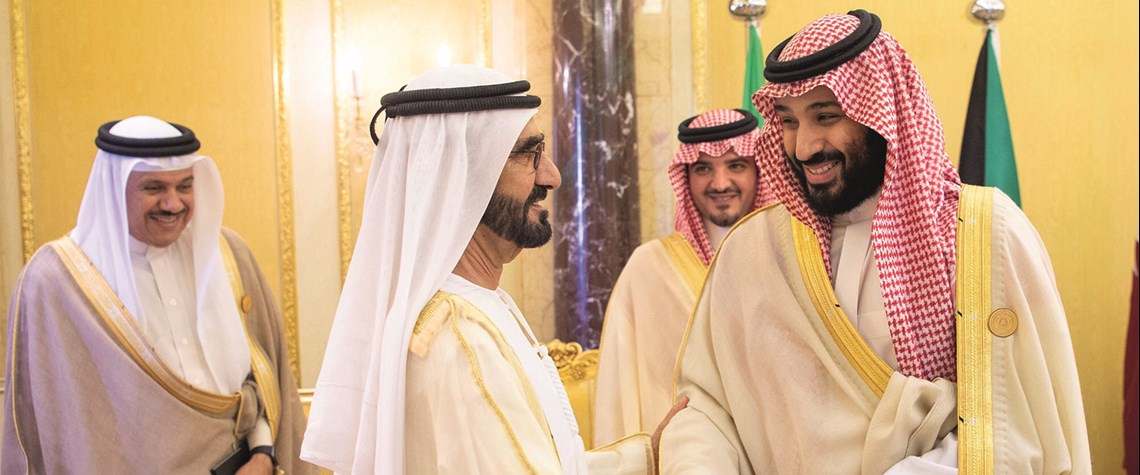Gulf states' cooperation quest falters
The GCC will struggle in 2019 to resolve the many issues that divide it and threaten its survival
Nothing points up the frailty of the Gulf Cooperation Council (GCC) more than the Qatar crisis. When Saudi Arabia, the UAE and Bahrain imposed an economic and diplomatic blockade on Qatar in June 2017 — accusing it, among other things, of supporting terrorism — they undermined the foundations of the regional grouping. For not only did three Gulf states turn on a fourth, but the other two GCC members, Kuwait and Oman, declined to support the action against Qatar. The fault lines ran in differing directions. Getting all six leaders together in one room is proving impossible. At the 2017 summit in Kuwait, the host, Shaikh Sabah al-Ahmad al-Sabah, and the Emir of Qatar, Shaikh Tamim bin Hamad Al

Also in this section
3 March 2026
The killing of Iran’s Supreme Leader Ayatollah Khamenei in US–Israeli strikes marks the most serious escalation in the region in decades and a bigger potential threat to the oil market than the start of the Russia-Ukraine crisis
2 March 2026
A potential blockade of the Strait of Hormuz following the escalating US-Iran conflict risks disrupting Qatari LNG exports that underpin global gas markets, exposing Asia and other markets to sharp price spikes, cargo shortages and renewed reliance on dirtier fuels
2 March 2026
The South Asian consumer’s next move could tighten the Middle East oil market overnight
2 March 2026
Canadian independent’s evolving portfolio in Trinidad and Tobago gives it access to the Atlantic LNG market and a close-up view of developments in neighbouring Venezuela







